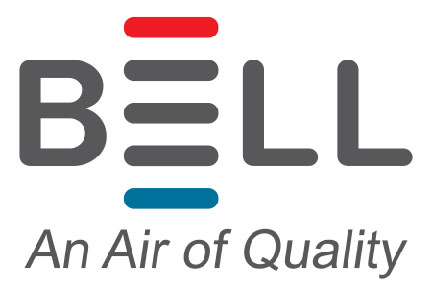
We spend a lot of time in our homes. In fact, the Environmental Protection Agency (EPA) has approximated being inside makes up 90% of our schedule. However, the EPA also has determined your indoor air can be three to five times worse than outdoors.
That’s since our houses are tightly sealed to boost energy efficiency. While this is fantastic for your heating and cooling bills, it’s not so great if you’re among the 40% of the population with respiratory allergies.
When outdoor ventilation is limited, pollutants such as dust and volatile organic compounds (VOCs) may get captured. Consequently, these pollutants might aggravate your allergies.
You can improve your indoor air quality with fresh air and usual housework and vacuuming. But if you’re still having problems with symptoms when you’re at home, an air purifier could be able to provide assistance.
While it can’t eliminate pollutants that have landed on your furnishings or carpet, it may help clean the air traveling across your house.
And air purification has also been scientifically verified to help lessen some allergic symptoms, according to the American College of Allergy, Asthma and Immunology. It could also be helpful if you or someone in your household has lung issues, including emphysema or COPD.
There are two kinds, a portable air purifier or a whole-home air purifier. We’ll examine the differences so you can learn what’s appropriate for your residence.
Whole-House Air Purifier vs. Portable Air Purifiers
A portable air purifier is for one room. A whole-house air purifier accompanies your HVAC system to clean your entire home. Some models can clean on their own when your home comfort unit isn’t running.
What’s the Best Air Purifier for Allergies?
Look for an option with a High Efficiency Particulate Air (HEPA) filter. HEPA filters are placed in hospitals and deliver the most comprehensive filtration you can find, as they eliminate 99.97% of particles in the air.
HEPA filters are even more beneficial when combined with an ultraviolet (UV) germicidal light. This mighty mixture can eliminate dust, dander, pollen and mold, all of which are standard allergens. For the best in air purification, think over a unit that also has a carbon-based filter to eliminate household odors.
Avoid buying an air purifier that generates ozone, which is the top element in smog. The EPA cautions ozone could worsen respiratory troubles, even when discharged at small concentrations.
The Allergy and Asthma Foundation of America has compiled a listing of questions to consider when purchasing an air purifier.
- What can this purifier take out from the air? What doesn’t it take out?
- What’s its clean air delivery rate? (A better amount means air will be freshened faster.)
- How often does the filter or UV bulb need to be replaced]? Can I complete that without help?
- How much do replacement filters or bulbs cost?
How to Lessen Seasonal Allergy Symptoms
Want to get the {top|most excellent|best] performance from your new air purification equipment? The Mayo Clinic advises doing other procedures to decrease your exposure to problems that can cause seasonal allergies.
- Stay inside and keep windows and doors shut when pollen counts are elevated.
- Have other household members mow the lawn or pull weeds, since these tasks can trigger symptoms. If you are required to do these chores yourself, consider using a pollen mask. You should also shower right away and change your clothes once you’re done.
- Avoid stringing up laundry outside your home.
- Turn on your air conditioner while at home or while in the car. Consider adding a high efficiency air filter in your residence’s heating and cooling unit.
- Balance your residence’s humidity levels with a whole-house dehumidifier.
- Hardwood, tile or linoleum are the ideal flooring kinds for decreasing indoor allergens. If your home has carpet, install a HEPA filter on your vacuum cleaner.
Let Our Pros Manage Your Indoor Air Quality Needs
Prepared to progress with adding a whole-house air purifier? Give our experts a call at 888-863-0560 or contact us online to get an appointment. We’ll help you find the ideal equipment for your house and budget.
